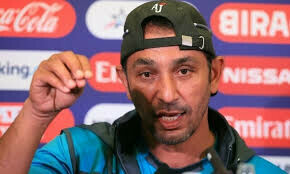MELBOURNE: Cricket Australia (CA) is exploring the possibility of disinfecting the ball during matches to minimise the health risk to players during the Covid-19 pandemic, the head of its medical team said on Wednesday.
Player health is a major concern as the game seeks to return from the coronavirus shutdown and the International Cricket Council’s cricket committee has recommended a ban on shining the ball with saliva.
“Disinfecting the ball is a consideration,” CA Sports Science and Sports Medicine Manager Alex Kountouris said in a video-conference. “We don’t know the impact on the ball because we haven’t tested it. We’d obviously have to test it, we’d have to speak to the ICC and get permission...
“The ball being leather, it’s harder to disinfect because it’s got little nooks and crevices. So we don’t know how effective it’s going to be, we don’t know how infected the ball is going to get and we don’t know if its going to be allowed.
“But it’s absolutely a consideration. Everything is on the table at the moment, everything is being considered.”
Kountouris said the proposed ban on shining the ball with saliva would be difficult for players to get used to.
“Some people are used to licking their fingers before they grab the ball. People are used to shining the ball with their fingers ... there are going to be mistakes at some point,” he added.
“I imagine we are going to take a commonsense approach and understand that people make mistakes and things are not going to be perfect.”
Meanwhile, Australia quick Josh Hazlewood says the proposed ban on cricketers using saliva to shine the ball will be difficult to police but ultimately might not make much difference to the art of swing bowling.
Cricketers have long used saliva and sweat to shine one side of the ball, altering the aerodynamics in an attempt to generate movement in the air as it flies towards the batsman.
Sweat, which carries less risk of transmission, will still be allowed if the ban is enforced but Hazlewood thought it would be tough for umpires to end the practise of applying a bit of spit to the ball.
“I’d like saliva to be used obviously but if that’s what they’ve put forward, I guess everyone is playing the same game,” he told Sydney’s Daily Telegraph. “Once it comes back to you as a bowler, it’s second nature to just give it a little touch up if you see something, and that’s going to be hard to stop to be honest. And it’s a tough thing to monitor for sure.”
Hazlewood, while admitting he had no medical training, questioned whether the measure was necessary at all given that players live in each other’s pockets during matches.
As to whether it would make much of a difference to the effectiveness of pace bowling, Hazlewood was uncertain.
“Sweat probably makes [the ball] a bit wetter if that makes sense. Makes it a bit heavier,” he added. “I think you’ll use very small amounts because people have sweaty hands anyway and it gets on the ball ... I don’t think this will have as big an impact as what people think.”
Published in Dawn, May 21st, 2020














































